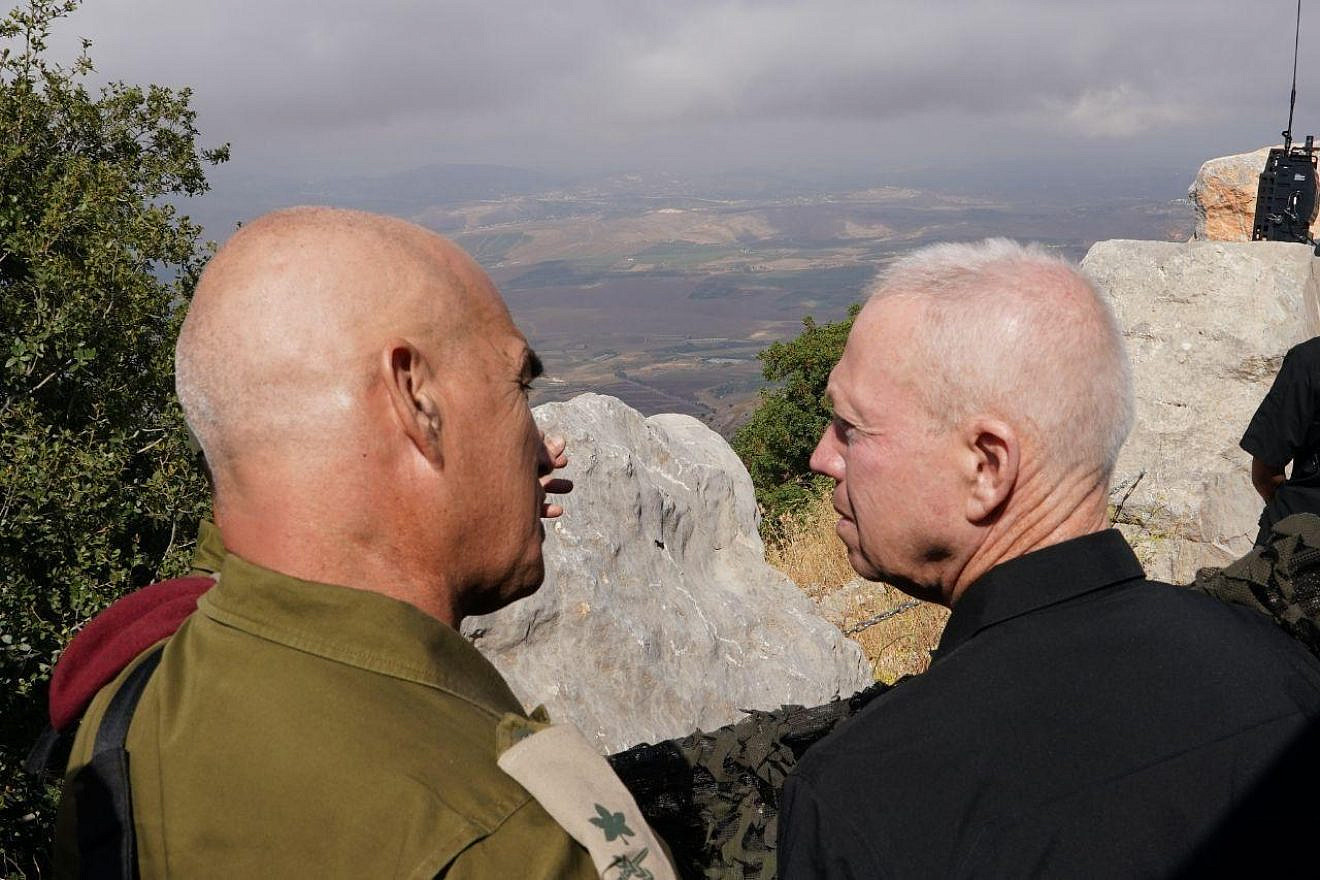During a visit to the border with Lebanon on Tuesday, Israeli Defense Minister Yoav Gallant warned Hezbollah not to test the Jewish state, speaking amid ongoing provocations by the Iran-backed terrorist organization.
Gallant toured the Mount Dov region with Israel Defense Forces Northern Command head Maj. Gen. Ori Gordin and other senior officers, where he was updated on “defensive efforts being made along the border and the progress of the construction of the barrier,” his office said.
In a Hebrew-language video statement, Gallant told Hezbollah Secretary-General Hassan Nasrallah “not to make a mistake.”
“If … an escalation or conflict develops here, we will return Lebanon to the Stone Age. We will not hesitate to use all our power, and erode every inch of Hezbollah and Lebanon if we have to,” Gallant warned the terror chief.
“Don’t mistake us: We don’t want war but we are ready to protect our citizens, our soldiers, and our sovereignty,” added Gallant.
Armed Hezbollah terrorists were recently spotted patrolling the border between Lebanon and Israel in clear violation of a legally binding U.N. resolution, the IDF revealed late last month.
The military noted the Hezbollah operatives did not cross the Blue Line, a U.N.-recognized delineation marking Israel’s withdrawal from Lebanon in 2000, and they were kept under strict surveillance the entire time.
However, according to U.N. Security Council Resolution 1701, which was passed after the 2006 war between Israel and Hezbollah and ratified by both Beirut and Jerusalem, Hezbollah is forbidden from operating anywhere near the frontier. The resolution also called for disarming the terrorist group.
The armed patrol was the latest in a series of provocations along the Jewish state’s northern frontier, most of them instigated by Hezbollah, which have raised tensions in recent months.
Last month, the IDF foiled an attempt by Hezbollah to damage the border fence. Gallant said that Israeli troops “deterred Hezbollah activists with non-lethal means and will continue to guard the security of the State of Israel.”
In early April, Hezbollah pitched two tents a few meters on the Israeli side of the Blue Line. The position, located across from an IDF post, was reportedly manned by three to eight armed terrorists. It was reported on July 2 that Hezbollah had removed one of the tents.
On March 15, a terrorist who infiltrated from Lebanon planted a roadside bomb in northern Israel that severely wounded a motorist. Shareef ad-Din, 21, from the Israeli Arab town of Salem, was wounded when the explosive device detonated behind a road barrier near the Megiddo Junction, some 18 miles southeast of Haifa.
Israel’s Foreign Ministry revealed in May that Hezbollah has in the past year constructed no fewer than 27 military posts along the Blue Line. The posts were built under the guise of Green without Borders, a Hezbollah-affiliated organization that poses as an environmental NGO.
A high-level U.S. defense delegation visited Israel last week, where they toured the border with Lebanon. Led by Under Secretary of Defense for Intelligence and Security Ronald Moultrie, the previously unannounced four-day trip also included U.S. Army Lt. Gen. Scott Berrier, director of the Defense Intelligence Agency, and other senior U.S. Department of Defense officials.
“The conversation dealt with security and intelligence issues and unique challenges shared by Israel and the U.S., led by the Iranian effort to destabilize the region,” the Israeli Defense Ministry said in a statement.
“The American delegation toured the northern border and received an overview of the unique challenges posed by the Hezbollah threat along the Israel-Lebanon border,” according to the statement.
The visit came amid reports that Iran is working to seize control of an extensive network of Syrian military industry facilities. The report also warned of the possibility of Hezbollah taking possession of chemical substances that are being stored by the Assad regime, and using them to produce chemical weapons for use against Israeli military forces or civilians in a future conflict.


























